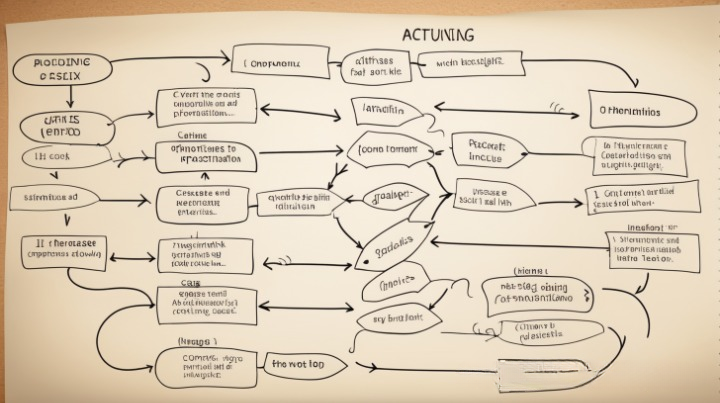Introduction:
“Welcome to ‘Procrastination Buster: Your Roadmap to Management Success.’ In this introductory segment, we delve into the pervasive challenge of procrastination, a hurdle encountered by many in both personal and professional spheres. From delaying crucial work tasks to sidestepping personal aspirations, procrastination can significantly impede productivity and escalate stress levels. However, armed with effective strategies and a transformative mindset, conquering procrastination becomes attainable. Join us as we explore a myriad of techniques and tactics designed to help you surmount procrastination and propel yourself towards management success.”

Understanding Procrastination
Procrastination, often characterized by the delay of tasks despite knowing the negative consequences, can stem from various factors. From fear of failure to perfectionism or simply feeling overwhelmed, there are numerous reasons why individuals procrastinate. Understanding the root causes of procrastination is the first step toward addressing and overcoming this behavior.
The Impact of Procrastination
Procrastination can have significant repercussions on both personal and professional life. From missed deadlines and subpar work quality to increased stress and anxiety, the consequences of procrastination can be detrimental. Recognizing how procrastination affects various aspects of your life is essential for initiating change and adopting healthier habits.
Identifying Procrastination Patterns
To effectively combat procrastination, it’s crucial to identify recurring patterns and triggers that contribute to this behavior. Whether it’s procrastinating during specific times of the day or in response to certain types of tasks, pinpointing these patterns can help you develop targeted strategies for overcoming procrastination.
Breaking the Procrastination Cycle
Breaking free from the cycle of procrastination requires a combination of self-awareness, discipline, and proactive measures. By implementing strategies such as task prioritization, setting SMART goals, and utilizing time management techniques, you can gradually diminish procrastination tendencies and boost your productivity.
Cultivating a Growth Mindset
Adopting a growth mindset, characterized by a belief in one’s ability to improve and learn from setbacks, is instrumental in overcoming procrastination. Instead of viewing challenges as insurmountable obstacles, cultivate a mindset that embraces opportunities for growth and development.
Embracing Imperfection
Perfectionism often fuels procrastination, as individuals may delay tasks in fear of not meeting exceptionally high standards. Learning to embrace imperfection and acknowledging that progress is more important than perfection can help alleviate the pressure and perfectionistic tendencies that contribute to procrastination.
Building Accountability
Accountability plays a crucial role in combating procrastination. Whether it’s enlisting the support of a mentor, joining a accountability group, or utilizing productivity apps that track your progress, establishing external sources of accountability can help you stay on track and motivated.
Overcoming Procrastination: Practical Strategies
1. Pomodoro Technique

The Pomodoro Technique is a time management method that involves breaking work into intervals, typically 25 minutes long, separated by short breaks. This strategy can help increase focus and productivity while combating procrastination.
2. Eat That Frog

Popularized by author Brian Tracy, the “Eat That Frog” method encourages tackling the most challenging task first thing in the morning. By prioritizing and completing the most daunting task early in the day, you’ll build momentum and minimize procrastination tendencies.
3. Implementation Intentions

Implementation intentions involve planning specific actions to overcome obstacles and achieve goals. By outlining when, where, and how you’ll complete a task, you’ll increase the likelihood of following through and reducing procrastination.
4. Reward Yourself

Incorporating rewards into your workflow can provide motivation and incentive to overcome procrastination. Whether it’s a small treat after completing a task or a more significant reward for reaching a milestone, acknowledging your progress can reinforce positive behavior.
5. Limit Distractions

Identify and minimize distractions in your environment to enhance focus and productivity. This may involve turning off notifications, designating a dedicated workspace, or utilizing productivity tools that block distracting websites or apps.
6. Practice Self-Compassion
Beating yourself up over past procrastination only perpetuates negative feelings and hinders progress. Practice self-compassion by acknowledging your efforts, learning from mistakes, and treating yourself with kindness and understanding.
Understanding Procrastination in the Context of MBO

In the realm of Management by Objectives, procrastination can hinder progress towards established goals and objectives. Whether it’s delaying action on key initiatives, putting off performance evaluations, or postponing strategic planning sessions, procrastination can derail the entire MBO process and impede organizational success.
Examples of Procrastination-Busting Strategies for MBO
1. Breaking Tasks into Smaller Steps
Breaking down larger objectives into smaller, more manageable tasks is a cornerstone of the MBO approach. By dividing complex projects into actionable steps, individuals can overcome feelings of overwhelm and tackle tasks with greater focus and efficiency. For example, instead of procrastinating on a comprehensive market analysis, break it down into research, data collection, and analysis phases, making each step more achievable.
2. Setting Deadlines and Holding Oneself Accountable
In MBO, setting clear and realistic deadlines is essential for driving progress and maintaining momentum. By establishing specific timelines for each objective, individuals can create a sense of urgency and accountability, reducing the likelihood of procrastination. For instance, setting a deadline for completing a sales report by the end of the week and holding oneself accountable to meet that deadline can help prevent procrastination and ensure timely completion of tasks.
3. Prioritizing Tasks Based on Importance and Urgency
Prioritization is a fundamental principle of MBO, guiding individuals to focus their efforts on tasks that align with overarching objectives. By identifying the most critical tasks and allocating resources accordingly, individuals can minimize distractions and prioritize activities that drive meaningful progress. For example, prioritizing customer acquisition initiatives over administrative tasks can help maintain focus on strategic objectives and deter procrastination.
4. Using Time Management Techniques like the Pomodoro Technique
Effective time management is integral to the success of MBO, enabling individuals to optimize productivity and maximize results. Techniques such as the Pomodoro Technique, which involves breaking work into intervals separated by short breaks, can enhance focus and combat procrastination. By working in concentrated bursts and taking regular breaks, individuals can maintain energy levels and sustain motivation throughout the day, facilitating progress towards management objectives.
FAQs About Procrastination:
- How does procrastination impact mental health? Procrastination can contribute to increased stress, anxiety, and feelings of overwhelm, negatively impacting mental well-being.
- Is procrastination a sign of laziness? Contrary to popular belief, procrastination is often linked to underlying psychological factors such as fear of failure or perfectionism, rather than mere laziness.
- Can procrastination be beneficial in any way? While procrastination is generally viewed as a hindrance to productivity, some argue that occasional procrastination can provide valuable time for reflection and creative thinking.
- What role does self-discipline play in overcoming procrastination? Self-discipline is essential for combating procrastination, as it involves exerting control over impulses and prioritizing long-term goals over immediate gratification.
- How can I help someone else overcome procrastination? Supporting someone else in overcoming procrastination involves providing encouragement, accountability, and assisting them in developing personalized strategies for managing their time effectively.
- What are some warning signs that procrastination may be becoming a problem? Warning signs of problematic procrastination include chronic delays in completing tasks, increasing feelings of stress or guilt, and a pattern of missed deadlines or unmet goals.
Conclusion:
In conclusion, procrastination is a common challenge that many individuals face, but it’s not insurmountable. By understanding the underlying causes of procrastination, implementing effective strategies, and fostering a growth mindset, you can overcome procrastination and reclaim control over your time and productivity. Remember, progress is more important than perfection, and each small step toward combating procrastination brings you closer to achieving your goals. Incorporating effective procrastination-busting strategies is essential for achieving management objectives within the MBO framework. By understanding how procrastination impacts goal attainment, leveraging practical examples tailored to MBO principles, and implementing strategies aligned with individual preferences and work styles, individuals can overcome procrastination and drive meaningful progress towards their objectives.












Pingback: Procrastination Buster: Your Roadmap to Managem...